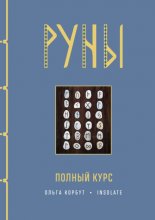«ло под солнцем / Evil Under the Sun ристи јгата

Again Poirot nodded.
Christine said rather sharply: УWhat are you hinting at, M.†Poirot? What is the meaning of all this?Ф
For answer Poirot produced a small volume bound in faded brown calf.
He said: УHave you ever seen this before?Ф
УWhy Ц I†think Ц IТm not sure Ц yes, Linda was looking into it in the village lending library the other day. But she shut it up and thrust it back quickly when I†came up to her. It made me wonder what it was.Ф
Silently Poirot displayed the tide. УA†History of Witchcraft, Sorcery and of the Compounding of Untraceable PoisonsФ.
Christine said: УI†donТt understand. What does all this mean?Ф
Poirot said gravely: УIt may mean, Madame, a good deal.Ф
She looked at him inquiringly, but he did not go on. Instead he said:
УOne more question, Madame. Did you take a bath that morning before you went out to play tennis?Ф
Christine stared again.
УA†bath? No. I†would have had no time and anyway I†didnТt want a bath Ц not before tennis. I†might have had one after.Ф
УDid you use your bathroom at all when you came in?Ф
УI†sponged my face and hands, thatТs all.Ф
УYou did not turn on the bath at all?Ф
УNo, IТm sure I†didnТt.Ф
Poirot nodded. He said:
УIt is of no importance.Ф
Hercule Poirot stood by the table where Mrs Gardener was wrestling with a jigsaw. She looked up and jumped.
УWhy M.†Poirot, how very quietly you came up beside me! I†never heard you. Have you just come back from the inquest? You know, the very thought of that inquest makes me so nervous, I†donТt know what to do. ThatТs why IТm doing this puzzle. I†just felt I†couldnТt sit outside on the beach as usual. As Mr Gardener knows, when my nerves are all upset, thereТs nothing like one of these puzzles for calming me. There now, where does this white piece fit in? It must be part of the fur rug, but I†donТt seem to seeЕФ
Gently PoirotТs hand took the piece from her. He said:
УIt fits, Madame, here. It is part of the cat.Ф
УIt canТt be. ItТs a black cat.Ф
УA†black cat, yes, but you see the tip of the black catТs tail happens to be white.Ф
УWhy, so it does! How clever of you! But I†do think the people who make puzzles are kind of mean. They just go out of their way tn deceive you.Ф
She fitted in another piece and then resumed:
УYou know, M.†Poirot, IТve been watching you this last day or two. I†just wanted to watch you detecting if you know what I†mean Ц not that it doesnТt sound rather heartless put like that, as though it were all a game Ц and a poor creature killed. Oh, dear, every time I†think of it I†get the shivers! I†told Mr Gardener this morning IТd just got to get away from here, and now the inquestТs over he says he thinks weТll be able to leave tomorrow, and thatТs a blessing, IТm sure. But about detecting, I†would so like to know your methods Ц you know, IТd feel privileged if youТd just explain it to me.Ф
Hercule Poirot said: УIt is a little like your puzzle, Madame. One assembles the pieces. It is like a mosaic Ц many colours and patterns Ц and every strange-shaped little piece must be fitted into its own place.Ф
УNow isnТt that interesting? Why, IТm sure you explain it just too beautifully.Ф
Poirot went on: УAnd sometimes it is like that piece of your puzzle just now. One arranges very methodically the pieces of the puzzle Ц one sorts the colours Ц and then perhaps a piece of one colour that should fit in with Ц say, the fur rug, fits instead in a black catТs tail.Ф
УWhy, if that doesnТt sound too fascinating! And are there a great many pieces, M.†Poirot?Ф
УYes, Madame. About everyone here in this hotel has given me a piece for my puzzle. You amongst them.Ф
УMe?Ф Mrs GardenerТs tone was shrill.
УYes, a remark of yours, Madame, was exceedingly helpful. I†might say it was illuminating.Ф
УWell, if that isnТt too lovely! CanТt you tell me some more, M.†Poirot?Ф
УAh! Madame, I†reserve the explanations for the last chapter.Ф
Mrs Gardener murmured: УIf that isnТt just too bad!Ф
Hercule Poirot tapped gently on the door of Captain MarshallТs room. Inside there was the sound of a typewriter. A†curt УCome inФ came from the room and Poirot entered. Captain MarshallТs back was turned to him. He was sitting typing at the table between the windows. He did not turn his head but his eyes met PoirotТs in the mirror that hung on the wall directly in front of him.
He said irritably: УWell, M.†Poirot, what is it?Ф
Poirot said quickly: УA†thousand apologies for intruding. You are busy?Ф
Marshall said shortly: УI†am rather.Ф
Poirot said: УIt is one little question that I†would like to ask you.Ф
Marshall said: УMy God, IТm sick of answering questions. IТve answered the police questions. I†donТt feel called upon to answer yours.Ф
Poirot said: УMine is a very simple one. Only this. On the morning of your wifeТs death, did you have a bath after you finished typing and before you went out to play tennis?Ф
УA†bath? No, of course I†didnТt! I†had a bath only an hour earlier!Ф
Hercule Poirot said: УThank you. That is all.Ф
УBut look here Ц Oh Ц Ф the other paused irresolutely.
Poirot withdrew gently closing the door. Kenneth Marshall said:
УThe fellowТs crazy!Ф
Just outside the bar Poirot encountered Mr Gardener. He was carrying two cocktails and was clearly on his way to where Mrs Gardener was ensconced with her jig saw. He smiled at Poirot in genial fashion.
УCare to join us, M.†Poirot?Ф
Poirot shook his head.
He said: УWhat did you think of the inquest, Mr Gardener?Ф
Mr Gardener lowered his voice. He said: УSeemed kind of indeterminate to me. Your police, I†gather, have got something up their sleeves.Ф
УIt is possible,Ф said Hercule Poirot.
Mr Gardener lowered his voice still further.
УI†shall be glad to get Mrs Gardener away. SheТs a very, very sensitive woman, and this affair has got on her nerves. SheТs very highly strung.Ф
Hercule Poirot said: УWill you permit me, Mr Gardener, to ask you one question?Ф
УWhy, certainly, M.†Poirot. Delighted to assist you in any way I†can.Ф
Hercule Poirot said: УYou are a man of the world Ц a man, I†think, of considerable acumen. What, frankly, was your opinion of the late Mrs Marshall?Ф
Mr GardenerТs eyebrows rose in surprise. He glanced cautiously round and lowered his voice.
УWell, M.†Poirot, IТve heard a few things that have been kind of going around, if you get me, especially among the women.Ф Poirot nodded. УBut if you ask me IТll tell you my candid opinion and that is that that woman was pretty much of a darned fool!Ф
Hercule Poirot said thoughtfully: УNow that is very interesting.Ф
Rosamund Darnley said: УSo itТs my turn, is it?Ф
УPardon?Ф
She laughed.
УThe other day the Chief Constable held his inquisition. You sat by. Today, I†think, you are conducting your own unofficial inquiry. IТve been watching you. First Mrs Redfern, then I†caught a glimpse of you through the lounge window where Mrs Gardener is doing her hateful jig saw puzzle. Now itТs my turn.Ф
Hercule Poirot sat down beside her. They were on Sunny Ledge. Below them the sea showed a deep glowing green. Further out it was a pale dazzling blue.
Poirot said: УYou are very intelligent, Mademoiselle. I†have thought so ever since I†arrived here. It would be a pleasure to discuss this business with you.Ф
Rosamund Darnley said softly:
УYou want to know what I†think about the whole thing?Ф
УIt would be most interesting.Ф
Rosamund said: УI†think itТs really very simple. The clue is in the womanТs past.Ф
УThe past? Not the present?Ф
УOh! Not necessarily the very remote past! I†look at it like this. Arlena Marshall was attractive, fatally attractive, to men. ItТs possible, I†think, that she also tired of them rather quickly. Amongst her Ц followers, shall we say Ц was one who resented that. Oh, donТt misunderstand me, it wonТt be some one who sticks out a mile. Probably some tepid little man, vain and sensitive Ц the kind of man who broods. I†think he followed her down here, waited his opportunity and killed her.Ф
УYou mean that he was an outsider, that he came from the mainland?Ф
УYes. He probably hid in that cave until he got his chance.Ф
Poirot shook his head. He said:
УWould she go there to meet such a man as you describe? No, she would laugh and not go.Ф
Rosamund said: УShe maynТt have known she was going to meet him. He may have sent her a message in some other personТs name.Ф
Poirot murmured: УThat is possible.Ф
Then he said:
УBut you forget one thing, Mademoiselle. A†man bent on murder could not risk coming in broad daylight across the causeway and past the hotel. Some one might have seen him.Ф
УThey might have Ц but I†donТt think that itТs certain. I†think itТs quite possible that he could have come without any one noticing him at all.Ф
УIt would be possible, yes, that I†grant you. But the point is that he could not count on that possibility.Ф
Rosamund said: УArenТt you forgetting something? The weather.Ф
УThe weather?Ф
УYes. The day of the murder was a glorious day but the day before, remember, there was rain and thick mist. Any one could come onto the island then without being seen. He had only to go down to the beach and spend the night in the cave. That mist, M.†Poirot, is important.Ф
Poirot looked at her thoughtfully for a minute or two. He said:
УYou know, there is a good deal in what you have just said.Ф
Rosamund flushed. She said:
УThatТs my theory, for what it is worth. Now tell me yours.Ф
УAh,Ф said Hercule Poirot. He stared down at the sea. УEh bien, Mademoiselle. I†am a very simple person. I†always incline to the belief that the most likely person committed the crime. At the very beginning it seemed to me that only one person was very clearly indicated.Ф
RosamundТs voice hardened a little. She said:
УGo on.Ф
Hercule Poirot went on. УBut you see, there is what you call a snag in the way! It seems that it was impossible for that person to have committed the crime.Ф
He heard the quick expulsion of her breath.
She said rather breathlessly: УWell?Ф
Hercule Poirot shrugged his shoulders.
УWell, what do we do about it? That is my problem.Ф He paused and then went on. УMay I†ask you a question?Ф
УCertainly.Ф
She faced him, alert and vigilant. But the question that came was an unexpected one.
УWhen you came in to change for tennis that morning, did you have a bath?Ф
Rosamund stared at him.
УA†bath? What do you mean?Ф
УThat is what I†mean. A†bath! The receptacle of porcelain, one turns the taps and fills it, one gets in, one gets out and ghoosh Ц ghoosh Ц ghoosh, the water goes down the waste pipe!Ф
УM. Poirot, are you quite mad?Ф
УNo, I†am extremely sane.Ф
УWell, anyway, I†didnТt take a bath.Ф
УHa!Ф said Poirot. УSo nobody took a bath. That is extremely interesting.Ф
УBut why should any one take a bath?Ф
Hercule Poirot said: УWhy, indeed?Ф
Rosamund said with some exasperation: УI†suppose this is the Sherlock Holmes touch!Ф
Hercule Poirot smiled. Then he sniffed the air delicately.
УWill you permit me to be impertinent. Mademoiselle?Ф
УIТm sure you couldnТt be impertinent, M.†Poirot.Ф
УThat is very kind of you. Then may I†venture to say that the scent you use is delicious Ц it has a nuance Ц a delicate elusive charm.Ф He waved his hands, and then added in a practical voice, УGabrielle, No. 8, I†think?Ф
УHow clever you are. Yes, I†always use it.Ф
УSo did the late Mrs Marshall. It is chic, eh? And very expensive?Ф
Rosamund shrugged her shoulders with a faint smile.
Poirot said: УYou sat here where we are now, Mademoiselle, on the morning of the crime. You were seen here, or at least your sunshade was seen by Miss Brewster and Mr Redfern as they passed on the sea. During the morning. Mademoiselle, are you sure you did not happen to go down to PixyТs Cove and enter the cave there Ц the famous PixyТs Cave?Ф
Rosamund turned her head an stared at him.
She said in a quiet voice: УAre you asking me if I†killed Arlena Marshall?Ф
УNo. I†am asking you if you went into the PixyТs Cave?Ф
УI†donТt even know where it is. Why should I†go into it? For what reason?Ф
УOn the day of the crime. Mademoiselle, somebody had been in that cave who used Gabrielle No. 8.Ф
Rosamund said sharply: УYouТve just said yourself, M.†Poirot, that Arlena Marshall used Gabrielle No. 8. She was on the beach that day. Presumably she went into the cave.Ф
УWhy should she go into the cave? It is dark there and narrow and very uncomfortable.Ф
Rosamund said impatiently: УDonТt ask me for reasons. Since she was actually at the cove she was by far the most likely person. IТve told you already I†never left this place the whole morning.Ф
УExcept for the time when you went into the hotel to Captain MarshallТs room,Ф Poirot reminded her.
УYes, of course. IТd forgotten that.Ф
Poirot said: УAnd you were wrong, Mademoiselle, when you thought that Captain Marshall did not see you.Ф
Rosamund said incredulously:
УKenneth did see me? Did Ц did he say so?Ф
Poirot nodded.
УHe saw you, Mademoiselle, in the mirror that hangs over the table.Ф
Rosamund caught her breath. She said:
УOh! I†see.Ф
Poirot was no longer looking out to sea. He was looking at Rosamund DarnleyТs hands as they lay folded in her lap. They were well-shaped hands, beautifully moulded with very long fingers. Rosamund, shooting a quick look at him, followed the direction of his eyes.
She said sharply: УWhat are you looking at my hands for? Do you think Ц do you think Ц ?Ф
Poirot said: УDo I†think Ц what, Mademoiselle?Ф
Rosamund Darnley said: УNothing.Ф
It was perhaps an hour later that Hercule Poirot came to the top of the path leading to Gull Cove. There was some one sitting on the beach. A†slight figure in a red shirt and dark blue shorts.
Poirot descended the path, stepping carefully in his tight smart shoes. Linda Marshall turned her head sharply. He thought that she shrank a little. Her eyes, as he came and lowered himself gingerly to the shingle beside her Ц rested on him with the suspicion and alertness of a trapped animal. He realized, with a pang, how young and vulnerable she was.
She said: УWhat is it? What do you want?Ф
Hercule Poirot did not answer for a minute or two.
Then he said: УThe other day you told the Chief Constable that you were fond of your stepmother and that she was kind to you.Ф
УWell?Ф
УThat was not true, was it, Mademoiselle?Ф
УYes, it was.Ф
Poirot said: УShe may not have been actively unkind Ц that I†will grant you. But you were not fond of her Ц oh, no Ц I†think you disliked her very much. That was very plain to see.Ф
Linda said: УPerhaps I†didnТt like her very much. But one canТt say that when a person is dead. It wouldnТt be decent.Ф
Poirot sighed.
He said: УThey taught you that at your school?Ф
УMore or less, I†suppose.Ф
Hercule Poirot said: УWhen a person has been murdered, it is more important to be truthful than to be decent.Ф
Linda said: УI†suppose you would say a thing like that.Ф
УI†would saw it and I†do say it. It is my business, you see, to find out who killed Arlena Marshall.Ф
Linda muttered: УI†want to forget it all. ItТs so horrible.Ф
Poirot said gently: УBut you canТt forget, can you?Ф
Linda said: УI†suppose some beastly madman killed her.Ф
Hercule Poirot murmured: УNo, I†do not think it was quite like that.Ф
Linda caught her breath.
She said: УYou sound Ц as though you knew?Ф
Poirot said: УPerhaps I†do know.Ф He paused and went on, УWill you trust me, my child, to do the best I†can for you in your bitter trouble?Ф
Linda sprang up. She said:
УI†havenТt any trouble. There is nothing you can do for me. I†donТt know what you are talking about.Ф
Poirot said, watching her: УI†am talking about candlesЕФ
He saw the terror leap into her eyes.
She cried: УI†wonТt listen to you. I†wonТt listen.Ф
She ran across the beach, swift as a young gazelle, and went flying up the zigzag path.
Poirot shook his head. He looked grave and troubled.
√лава 10
Ќебольша€ толпа покидала таверну Ђ расный быкї. раткое предварительное расследование закончилось Ц оно было отложено на две недели. –озамунд ƒарнли догнала капитана ћаршалла.
Ц†¬се было не так уж и плохо, правда, ен?†Ц негромко произнесла она.
еннет ответил не сразу. ¬озможно, он остро чувствовал на себе пристальные взгл€ды жителейдеревни, только что не тыкающих в него пальцами.
ЂЁто он, дорога€!ї Ђ—мотри, это ее мужї. ЂЁто должно быть мужї. Ђ—мотрите, вот он идетЕї
ћаршалл не разбирал слов, но все-таки остро чувствовал приглушенные голоса. Ёто был самый насто€щий позорный столб нашего времени. еннет уже успел столкнутьс€ с прессой Ц самоуверенными, напористыми молодыми журналистами, умело разрушающими стену молчани€ (Ђмне нечего вам сказатьї), которой он попыталс€ отгородитьс€. ƒаже короткие односложные слова, которые он произнес, уверенный в том, что их, по крайней мере, нельз€ истолковать превратно, в утренних газетах были представлены в совершенно другом ракурсе. ЂЌа вопрос, согласен ли он с тем, что загадочна€ смерть его жены может быть объ€снена только исход€ из того предположени€, что какой-то кровожадный мань€к проник на остров, капитан ћаршалл за€вил следующееЕї†Ц и тому подобное.
Ќепрерывно щелкали фотоаппараты. ¬от и сейчас знакомый звук привлек внимание еннета. ќн обернулс€ Ц улыбающийс€ парень радостно кивнул, свое дело он уже сделал.
Ц†Ђ апитан ћаршалл и его знакома€ покидают У расный быкФ после предварительного расследовани€ї,†Ц пробормотала –озамунд.
ћаршалл поморщилс€.
Ц†Ѕесполезно, ен!†Ц сказала –озамунд.†Ц Ќужно перетерпеть. » € имею в виду не только саму смерть јрлены, но и все св€занное с нею свинство. ѕ€л€щиес€ взоры и сплетничающие €зыки, вздорные газетные статьи; и†лучший способ справитьс€ с этим Ц обратить все в смех. —криви презрительно губы!
Ц†“ы считаешь, надо вести себ€ так?†Ц спросил он.
Ц†ƒа, считаю.†Ц –озамунд помолчала.†Ц ѕонимаю, это не в твоем характере. “ебе больше по нраву защитна€ окраска. «астыть неподвижно и слитьс€ с окружающим фоном! Ќо сейчас это не получитс€ Ц здесь нет окружающего фона, с которым можно было бы слитьс€. “ы стоишь у всех на виду Ц словно полосатый тигр перед белым экраном. ћуж убитой женщины!
Ц†–ади всего св€того, –озамундЕ
Ц†ƒорогой,†Ц м€гко произнесла она,†Ц € стараюсь сделать так, чтобы тебе стало лучше.
акое-то врем€ они шли молча. «атем ћаршалл произнес уже другим тоном:
Ц†«наю. Ќа самом деле € не такой уж неблагодарный, –озамунд.
ќни покинули пределы деревни. »х провожали взгл€ды, но поблизости уже никого не было. ѕонизив голос, мисс ƒарнли повторила с небольшими изменени€ми свою первую фразу:
Ц†Ќа самом деле все прошло не так уж плохо, правда?
ѕомолчав, ћаршалл сказал:
Ц†Ќе знаю.
Ц†„то думает полици€?
Ц†Ќичего определенного мне не говор€т.
„ерез минуту –озамунд сказала:
Ц†Ётот коротышка ѕуаро действительно про€вл€ет живой интерес!
Ц†Ќу да,†Ц согласилс€ еннет.†Ц ¬ день убийства он буквально ни на шаг не отходил от главного констебл€.
Ц†«наю Ц но есть от него хоть какой-нибудь толк?
Ц†„ерт возьми, –озамунд, а € откуда могу знать?
Ц†ќн уже старик,†Ц задумчиво промолвила мисс ƒарнли.†Ц ¬еро€тно, уже не в своем уме.






